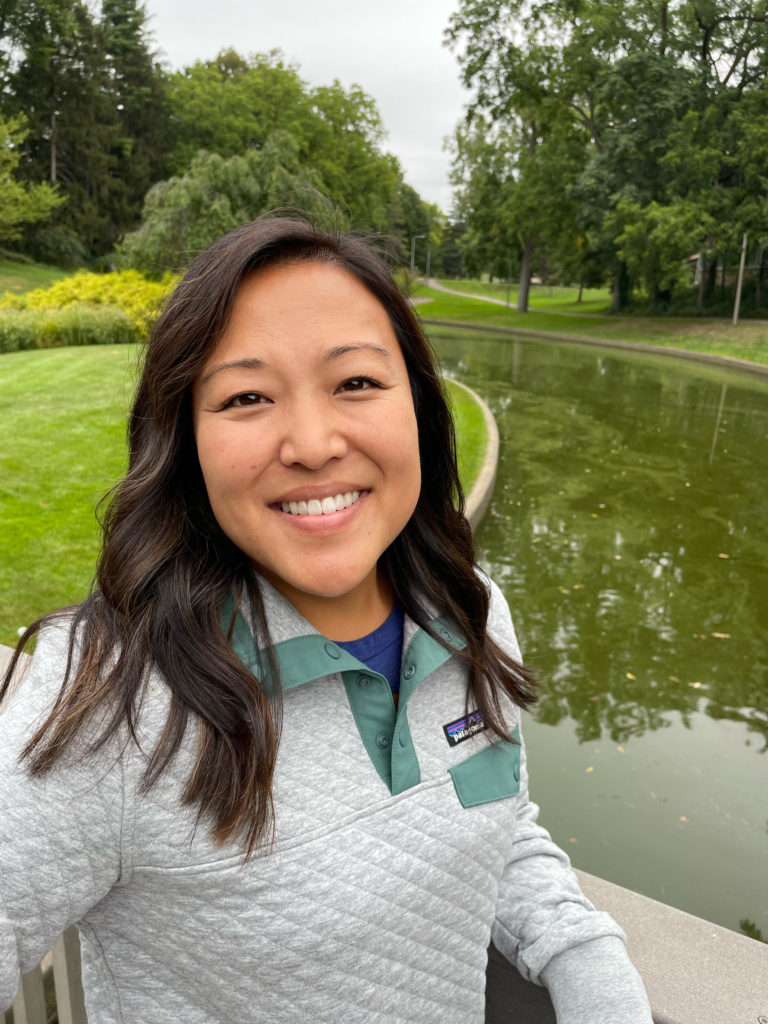By Dr. Kristin VanEyk, Assistant Professor of English, Hope College
Hello! My name is Kristin VanEyk and I’m a recent addition to the English Department faculty where I teach writing and secondary English education courses.
I’m a lifelong Christian educator. I’ve been teaching in Christian schools since 2006, first as a high school English teacher, and now as a professor at Hope College. As a lifelong Christian educator, I’ve often thought about what it means to identify by that title.
- What is the word “Christian” doing in the title?
- What about my work is distinctively “Christian” rather than, say, “moral” or “inclusive” or “justice-oriented”?
- How does a “Christian” identity influence my daily work: my lesson planning, my grading, my relationship with students, and my scholarship?
In short: does the title “Christian educator” actually mean anything at all?
In January of 2023, I gathered with a group of Hope College faculty to listen to Dr. David I. Smith talk about faith and learning. Dr. Smith told a number of stories meant to challenge our conceptions of faith and learning. He argued that simply praying during a class, or talking about faith or theology or Jesus during the few lessons where there’s a natural and overt connection does not in fact mark the content or the learning or the experience as “Christian.” In fact, anyone can pray, and anyone can talk about Jesus without actually integrating faith and learning for students or practicing “Christian education.”
So what, then, is the nature of a Christian education or a Christian educator?
Smith brought together two fundamental components of Christian education in English: reading and community. Specifically, Smith talked about the stark divide between the way that students are often trained to read–as consumers extracting knowledge–and how historical religious reading has been patterned–slowly, repeatedly, with the goal of empathy.
Consumer reading tends to foreground the self: What question do I need to answer, how does this text benefit me, how can I quickly extract what I need and then discard the text when it is no longer useful to me?
I sat next to a colleague who teaches in another division, and he told me that he recently assigned a group project, and as soon as students turned the project in, they treated one another as strangers. He watched as they passed each other in the hall and didn’t bother to make eye contact or say “hello” or even nod to one another.
My colleague grew up in Nigeria, and he had previously taught in Nigeria and China, and he had never seen students work together so intently and then forget one another so immediately. We wondered together if this attitude toward classmates is part of a larger educational pattern that encourages students to extract, use, and discard. Could we be training students to use people like materials, to extract ideas and labor for profit or grades, and then to discard people like a spent resource?
Surely Christian education must be the antidote to this kind of anthropology.
Religious reading is slow, attentive, ongoing, and repeated. If, as the reader, you don’t understand something the first time, you should assume that you’re mistaken, and not the text. Rather than being mastery-oriented and me-oriented, religious reading practices seek to develop both empathy and community.
One of the hallmarks of good thinking is being able to hold opposing ideas and consider them fairly, and Christian education trains students to do just that: to think about their readings and new ideas from a variety of perspectives: that of a consumer and a Christian, a student and a professional, and from a diversity of other perspectives.
One of the benefits of studying reading and writing in community at Hope College, as our English students do, is that it reinforces charity, patience, justice and humility. Charity to assume the best of the writer and the reader for as long as possible; patience to seek to understand; justice to learn to represent texts and authors accurately (even if you don’t particularly like or agree with them); and humility to assume that you, like all people, have a partial understanding.
The development of these kinds of reading practices in community grows the habits and dispositions of Christians. These communal habits and dispositions reflect a Christian anthropology in which all are worthy because of Jesus.
Perhaps that’s one of the great distinctives in Christian education: the cultivation of Christian disciplines and practices in communal spaces because of a Christian anthropology and toward a Christian anthropology. Framed that way, being a Christian educator surely does mean something. It means Christian educators lesson plan and teach and evaluate and work with students as if Jesus actually died and came back to life for every one of them–for all of us–and that means everything.
I’ll end with a final thought of good news. The habits and dispositions borne from and toward a Christian anthropology don’t cease when a student graduates from Hope College. That anthropology is the lens through which Hope graduates see others, and the practices of charity, humility, empathy, justice, and patience developed through the graduates’ Hope English education are practiced now in many places around the world.
Maybe that’s what a Christian education is about: bringing Hope to the world, one graduate at a time.



